Jewish History

Joanna Eckstein
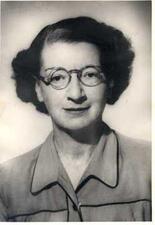
Tilly Edinger
Tilly Edinger made her mark as one of the leading vertebrate paleontologists of the twentieth century. Her pioneering work in paleoneurology, the study of fossil brains, established her international reputation as the outstanding woman in her field. She performed research in Germany before World War II and continued researching and teaching in the United States until her untimely death in 1967.
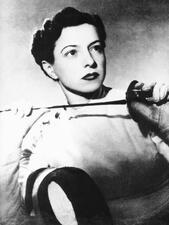
Ilona Elek
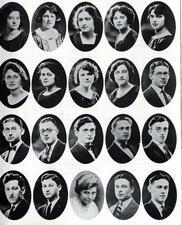
Elsie Chomsky
Elsie Chomsky, one of the many young Jewish educators influenced by reformer Samson Benderly, taught Modern Hebrew and organized arts activities for many years at Gratz College in Philadelphia. She trained and supervised student teachers who taught in local Reform and Conservative Hebrew schools.
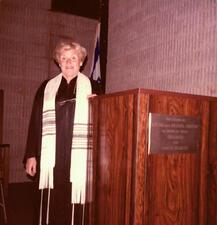
Julie Johanna Engel
Julie Johanna Isner Engel dreamed of becoming a professional opera singer in Germany in the 1930s, but the rise of the Nazis interrupted that dream. Escaping to the United States, she trained her voice in synagogue choirs and local opera performances. In the 1970s, she took a cantorial position at a synagogue in Queens, one of a pioneering generation of women cantors.
Claire Epstein
Claire Epstein is an outstanding example of a spirited woman archaeologist who worked untiringly and out of true love in search of the past in the Land of Israel. She received two important awards for her work: the Israel Museum’s Percia Shimmel Award in Archaeology and the Israel Prize for archaeology.
Equality, Religion and Gender in Israel
Although the principles of equality for women under the Declaration of Independence and the Women’s Equal Rights Law were not endowed with constitutional force, and the 1992 Basic Law: Human Dignity and Liberty does not expressly include the principle of equality, these laws have been interpreted by the courts as securing the principle of gender equality as a basic principle of the legal system.
Lotte Errell
Photojournalist Lotte Errell worked tirelessly to make her adventurous travels in Africa, China, and the Middle East accessible to her readers at home in Germany and beyond. Her success illustrates how photography and travel journalism provided women with new possibilities for independence and careers. Errell traveled the world throughout the 1930s taking photos and writing essays, but she was interrupted in the 1940s by the war.
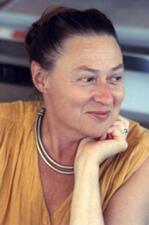
Rachel Ertel
Born in 1939, Rachel Ertel is a translator and an essayist. She remains one of the most prolific translators from Yiddish to French and dedicated her life to the survival of Yiddish culture in France and America.
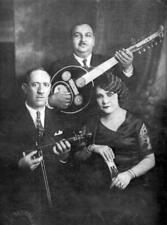
Rosa Eskenazi

Ethiopian Jewish Women
Sara N. Evans
Ruth Fainlight
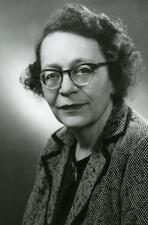
Minna Regina Falk
Minna Regina Falk was a historian, writer, and professor who is remembered for her work on German history. She became the first female full professor in New York University’s history department in 1963.
Family During the Holocaust
Although Jewish family life was destroyed and restructured in many ways during the Holocaust, it still often provided strength and a sense of normalcy. In many cases women became the family’s main income earner and were charged with many new tasks and responsibilities. Families were also frequently broken up by deportation, escape abroad, and death.
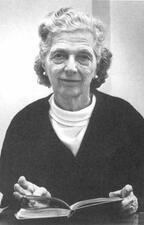
Jessica Feingold
Jessica Feingold devoted more than forty-five years of her life to carrying out the goals of the Jewish Theological Seminary. She edited fifty books that originated at the institution, while also serving in many different administrative positions.
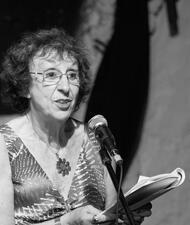
Elaine Feinstein
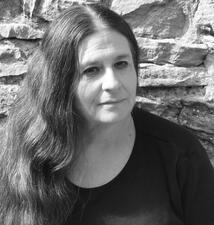
Merle Feld
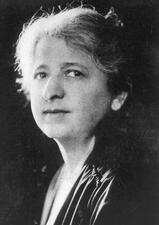
Mary Fels
Mary Fels used her wealth and her talents to further the Zionist cause, arguing passionately for a Jewish state and helping create both settlements and industry in Israel. Both Fels and her husband, a successful soap manufacturer, felt their wealth gave them a responsibility to reform capitalism and use their money for philanthropy.
Female Martyrdom
In various eras, Jewish women chose martrydom, or Kiddush ha-Shem (sanctification of the Divine Name), rather than repudiate God or transgress certain commandments. Examples appear in Jewish Hellenistic writings, rabbinic literature, Crusade chronicles, medieval Hebrew piyyut (liturgical poetry), accounts of the seventeenth-century Chmielnicki pogroms, and documents connected with the Shoah. Scholars differ, however, regarding the accuracy of these martyrological texts, which often reshape actual events to conform to iconic imagery.
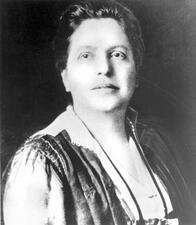
Feminism in the United States
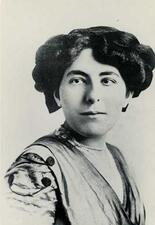
Edna Ferber
Prolific writer Edna Ferber celebrated America in her many works, even as she exposed its shortcomings. Her novel So Big won a Pulitzer Prize in 1925, and the film Giant and the musical Show Boat were both based on her novels. Ferber’s work was shaped by her childhood experiences of antisemitism and frequently featured strong and talented women.
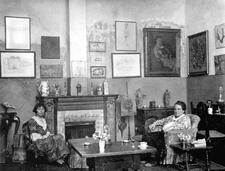
Fiction in the United States
Literature by American Jewish women reflects historical trends in American Jewish life and indicates the changing issues facing writers who worked to position themselves as Americans, Jews, and women.
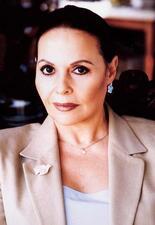
Filmmakers, Israeli
![Fink, Ida - still image [media] Fink, Ida - still image [media]](/sites/default/files/styles/gallery_item/public/mediaobjects/Fink-Ida.jpg?itok=13g8CE7y)
Ida Fink
A Polish-born writer who survived the Holocaust, Ida Fink published several collections of short stories and a novel that explore the experiences and after-effect of the Holocaust. Her subtle and nuanced writing brings memory and imagination to bear on a traumatic past.


